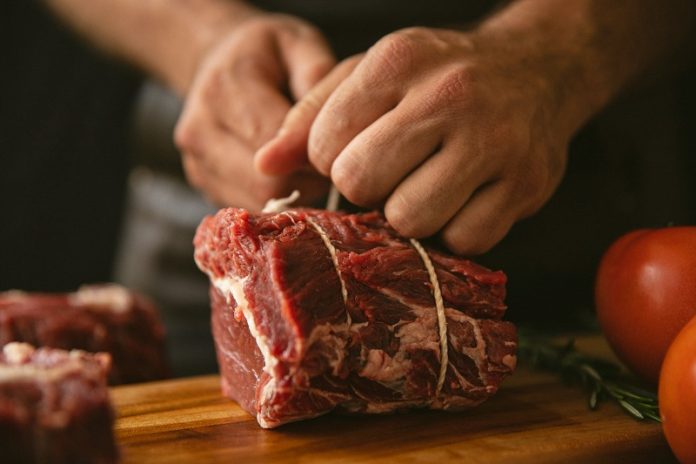
New research has revealed a clear connection between the increase in meat production and the rise in animal-to-human disease outbreaks, known as zoonotic diseases.
This study, published in the Australian Journal of Agricultural and Resource Economics, focuses on how beef, chicken, and pork production impact the spread of these diseases.
The study found that intensive meat production has significantly contributed to the increase in zoonotic disease outbreaks, especially in Asian countries, where the demand for meat has risen sharply.
These outbreaks often involve flu pathogens, which can spread from animals to humans.
The research was led by Ore Koren, an associate professor at Indiana University Bloomington, along with Jessica Steinberg and Amit Hagar. They were motivated by the widespread interest in understanding disease spread following the COVID-19 pandemic.
To get accurate data, the team created an original data set with help from undergraduates Katie O’Donnell and Callie Johnson.
This data set focused on Asian countries where many zoonotic diseases emerged between 1996 and 2019.
Why Asia?
The researchers chose to study Asian countries because they have seen a significant rise in meat demand and related disease outbreaks.
The study’s insights can also be applied to other regions like sub-Saharan Africa, where meat consumption is increasing.
The study highlights cases like the Nipah outbreak in Singapore in 1999, linked to contaminated meat, and a recent case of avian flu in the US spreading from cattle to humans.
These examples show the broader impact of meat industry-related disease spread.
The researchers found that a one million ton increase in meat production in a year can lead to a 48 to 530% rise in disease outbreaks for certain flu pathogens within a country. However, they did not find a clear link with other diseases like SARS and MERS.
To combat this issue, the researchers suggest several measures:
- Generate More Data: Better data collection and surveillance at the local level can help track and prevent outbreaks.
- Guidelines: International organizations like the Food and Agricultural Organization (FAO) could create guidelines to prevent the spread of diseases related to meat consumption.
- Better Farming Practices: Monitoring how farmers design their feedlots could help map how pathogens spread.
- Shifting Consumption Habits: Consuming higher-quality meats and plant-based substitutes, like Impossible burgers, could reduce the risk of disease spread.
Implementing these changes is not difficult and can be compared to making small lifestyle adjustments to mitigate climate change risks.
By adopting sustainable practices in the meat industry, we can significantly reduce the risk of zoonotic disease outbreaks and protect public health.
If you care about nutrition, please read studies about the benefits of low-dose lithium supplements, and low calorie diets may help reverse type 2 diabetes.
For more health information, please see recent studies about the best and worst foods for high blood pressure, and time-restricted eating: a simple way to fight aging and cancer



